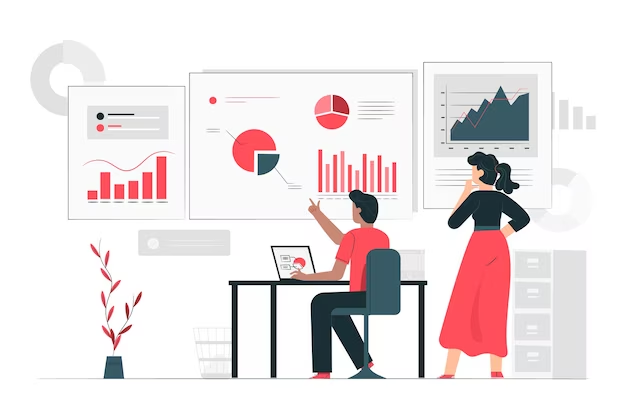Revenue Management Significance In The Hospitality Industry
Unlocking Revenue Secrets: Hospitality's Profit Boost with Smart Management

In the dynamic realm of the hospitality industry, Revenue Management (RM) stands as a pivotal strategy aimed at not only optimizing pricing but also catapulting profits to new heights. Despite its paramount importance, numerous hotel owners and operators may find themselves unfamiliar with the fundamental principles and advantages that a sophisticated RM approach can bring to their establishments. This article aims to provide a comprehensive overview of revenue management concepts, strategies, and practical applications, serving as a guide for hoteliers seeking to maximize revenue.
Read Also: How to Do Hotel Demand Forecasting To Optimize Revenue?
The Core Essence of Revenue Management
At its heart, revenue management leverages data, analytics, and strategic insights to dynamically adapt room rates in response to changing demand patterns. The ultimate goal is to sell each room at the optimal price, maximizing total revenues based on anticipated demand, competitive offerings, distribution channels, and market variables. Departing from fixed, static pricing, RM employs flexible rates capable of swift adjustments in response to fluctuating conditions. Accurate demand forecasts and segmentation empower hoteliers to strategically open and close pricing allotments across various channels, capturing additional revenue.
Essential Components of a Revenue Management System
The effectiveness of revenue management hinges on the utilization of a specialized RM system equipped with key functionalities:
- Advanced Analytics and Forecasting: Employing machine learning to continually enhance forecast accuracy by analyzing historical data and trends.
- Rate Shopping Intelligence: Real-time monitoring of competitor pricing across channels, ensuring optimal rate parity and competitiveness.
- Optimization Recommendations: Offering actionable suggestions based on integrated data points for optimizing transient and group rates, overbooking, minimum stays, and more.
- Allocation and Availability Management: Strategically managing overbooking and room allocation across distribution channels to prevent early sellouts or lost bookings.
- Performance Monitoring: Real-time monitoring of essential metrics such as RevPAR, ADR, occupancy, and conversion rates to gauge ROI and inform strategic adjustments.
Fundamental Revenue Management Strategies for Profit Maximization
Leveraging these capabilities, hotels can implement smart revenue management strategies, including:
- Demand-Based Dynamic Pricing: Adjusting rates based on forecasted demand, events, and seasons to maximize RevPAR given projected occupancy.
- Market Segmentation: Tailoring custom room types, packages, and rates to different guest segments based on their willingness to pay.
- Channel Optimization: Strategically managing room inventory and pricing across booking channels to maximize revenue, with restrictions in place to prevent cannibalization.
- Length-of-Stay Pricing: Implementing pricing variations based on stay duration to account for different guest acquisition costs and encourage longer stays.
- Overage Booking: Strategically overbooking to ensure maximum occupancy in anticipation of cancellations or no-shows, avoiding revenue loss.
- Promotions and Packaging: Strategically employing special rates, packages, and bundled amenities to stimulate demand during peak periods or slower times.
Read Also: Analyzing and Improving Sales Performance: Key Metrics to Consider
Conclusion: Mastering Profit Optimization through Revenue Management
In the dynamic hospitality industry, revenue management relies on data, analytics, and strategy to optimize room rates based on anticipated demand across various market segments, seasons, days of the week, booking channels, and other variables. Implementing a capable RM system and processes enables hoteliers to maximize RevPAR, ADR, occupancy, and total revenues. The flexibility in pricing and strategic optimization made possible by revenue management is invaluable in today’s dynamic hospitality industry.
To explore how Emersion Wellness can assist you in building RM capabilities tailored to your hotel’s specific needs and objectives, schedule a consultation with our experts today. Our team offers customized revenue management solutions to help independent hotels and chains maximize profitability.
FAQ’s
Question 1: What is revenue management in the hospitality industry?
Answer: Revenue management involves dynamically adjusting room rates to optimize profits based on demand, market variables, and competitive offerings.
Question 2: How does revenue management maximize profits for hotels?
Answer: By utilizing data, analytics, and strategic insights, revenue management ensures optimal pricing, filling rooms at the ideal rates to maximize total revenues.
Question 3: What role does market segmentation play in revenue management?
Answer: Market segmentation tailors room types, packages, and rates to different guest segments, optimizing revenue by meeting varied willingness-to-pay levels.
Question 4: How does length-of-stay pricing contribute to revenue optimization?
Answer: Length-of-stay pricing involves adjusting rates based on stay duration, accounting for different guest acquisition costs and encouraging longer stays.
Question 5: Can you provide examples of successful revenue management strategies?
Answer: Examples include adjusting rates during high-demand events, offering mid-week corporate discounts, and strategically managing OTA promotions.
Question 6: What key components are essential in a revenue management system?
Answer: Advanced analytics, rate shopping intelligence, optimization recommendations, allocation management, and real-time performance monitoring are crucial components.
Question 7: How does revenue management prevent revenue loss through overbooking?
Answer: Strategic overbooking ensures maximum occupancy, anticipating cancellations or no-shows, thus preventing revenue loss and optimizing room utilization.
Question 8: Why is real-time performance monitoring important in revenue management?
Answer: Real-time monitoring of metrics like RevPAR, ADR, and occupancy allows hoteliers to gauge ROI and make immediate strategic adjustments for optimal results.
Question 9: What impact does channel optimization have on revenue management?
Answer: Channel optimization strategically manages room inventory and pricing across booking channels, maximizing revenue while preventing cannibalization.
Question 10: How can hotels benefit from customized revenue management solutions?
Answer: Customized solutions, like those offered by Emersion Wellness, help hotels tailor revenue management strategies to specific needs, maximizing profitability and success.


